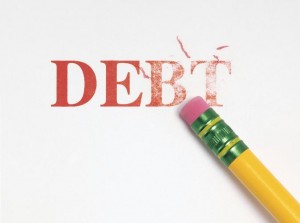3. I should max out my credit cards and give away my nonexempt property before filing  bankruptcy. These actions are very bad ideas. Giving away nonexempt property in preparation for filing bankruptcy is a fraudulent conveyance. Under the best circumstances the trustee will simply avoid the transfer and seize the property so that it can be liquidated and the proceeds paid to the creditors. If the trustee thinks that the debtor was intentionally trying to defraud the creditors then he may seize the assets for the creditors and then file an objection to discharge, so that the creditors get paid but the debtor doesn’t get a discharge. If a debtor maxes out his credit cards then the lenders might file a lawsuit against him to have the debt ordered to be nondischargeable. That means the creditor may be able to collect the debt after the bankruptcy case is concluded.
bankruptcy. These actions are very bad ideas. Giving away nonexempt property in preparation for filing bankruptcy is a fraudulent conveyance. Under the best circumstances the trustee will simply avoid the transfer and seize the property so that it can be liquidated and the proceeds paid to the creditors. If the trustee thinks that the debtor was intentionally trying to defraud the creditors then he may seize the assets for the creditors and then file an objection to discharge, so that the creditors get paid but the debtor doesn’t get a discharge. If a debtor maxes out his credit cards then the lenders might file a lawsuit against him to have the debt ordered to be nondischargeable. That means the creditor may be able to collect the debt after the bankruptcy case is concluded.
4. If I file bankruptcy I will lose everything I own. Exemptions are laws that prevent creditors (and bankruptcy trustees) from seizing property from debtors. In Texas we have very good exemptions. In fact, most of the bankruptcy cases filed in Texas result in no liquidation of the debtor’s assets, meaning they get to discharge all their debt but don’t have to hand over any property to the trustee. Exemptions vary from state to state, so it is important to consult a local bankruptcy attorney in order to determine how your assets will be affected by a bankruptcy filing. For assistance with a bankruptcy case in north Texas, contact a Texas bankruptcy lawyer.
The bottom line is that half the information on the internet about bankruptcy is bad information. It is either outdated, because the law changed in 2005, or because case law has changed the way the law is applied. It may be that the information is not wholly based upon federal bankruptcy law but also takes into account state law, which varies from state to state. There are also web sites that simply lie about bankruptcy in order to scare debtors from considering discharging their debts. To get the truth about how bankruptcy will affect you, contact a local bankruptcy lawyer.